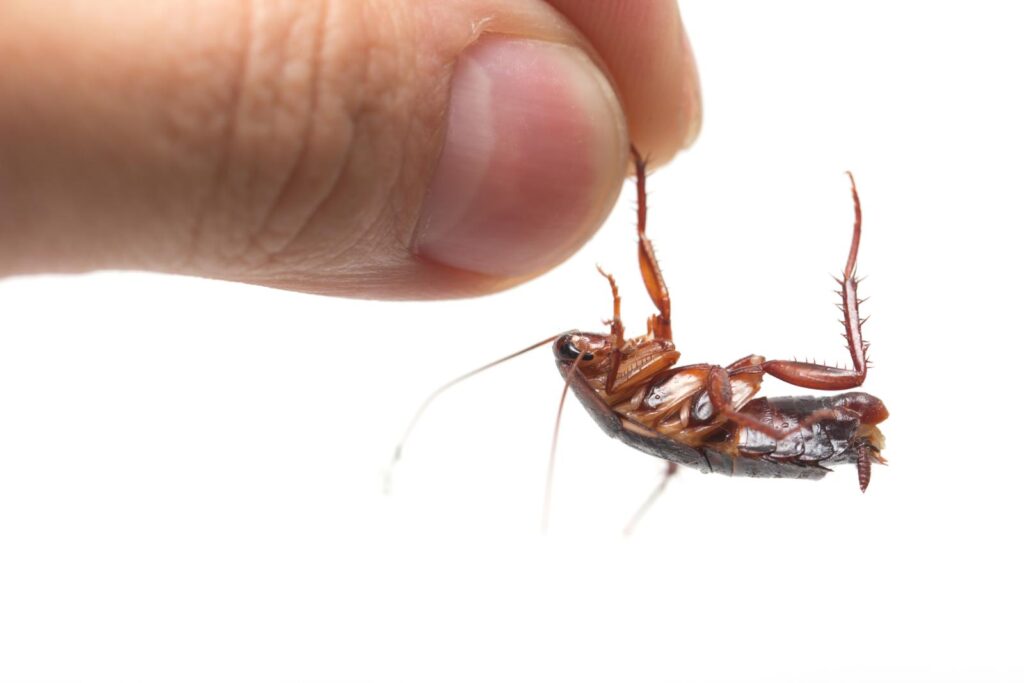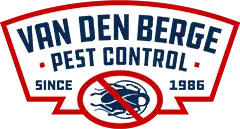
Contents
When dealing with indoor ant infestations, understanding their behavior is vital. Ants are social insects that follow scent trails to food sources, which is why keeping your home clean is essential. You can also explore natural deterrents and commercial baits for more stubborn problems. However, knowing which method to use for ant control and when can be complex. Let’s explore the most effective strategies to manage and prevent these pests in your home environment.
Key Takeaways
- Maintain a clean home by sweeping, vacuuming, and wiping surfaces to eliminate food sources that attract ants.
- Use natural deterrents like peppermint oil or vinegar solutions to disrupt ant pheromone trails.
- Apply commercial ant baits with slow-acting insecticides to target entire colonies effectively.
- Consider professional pest control services for significant infestations, ensuring thorough assessments and tailored treatment plans.
- Regularly monitor and maintain cleanliness to prevent future ant invasions after treatment.
Understanding Ant Behavior and Habits
To effectively manage ant infestations, it’s vital to understand their behavior and habits. Ants exhibit specific foraging patterns that can reveal their food preferences and movement routes. Typically, worker ants scout for food and leave pheromone trails to guide others back to the colony. Recognizing these trails can help you identify active areas and implement targeted control measures.
Additionally, understanding the colony structure is significant. Ant colonies consist of a queen, workers, and sometimes drones, each playing distinct roles. The queen’s primary function is reproduction, while workers forage, care for the young, and defend the nest.
This hierarchy affects how quickly a colony can respond to threats or changes in their environment.
Keeping Your Home Clean and Tidy
To effectively control indoor ants, maintaining regular cleaning routines is essential.
This includes promptly cleaning spills and crumbs, as well as ensuring proper food storage in sealed containers.
Regular Cleaning Routines
Maintaining a clean and tidy home is essential for effective indoor ant control, as even a few crumbs can attract these pests.
Implementing a regular cleaning routine offers numerous benefits and helps reduce the likelihood of an infestation. To establish an effective cleaning frequency, consider these tips:
- Sweep and vacuum floors daily to eliminate food particles.
- Wipe down surfaces with disinfectant to remove residues.
- Regularly take out the trash to prevent odors that attract ants.
- Clean under appliances and furniture weekly to eliminate hidden food sources.
Proper Food Storage
While regular cleaning routines are essential, proper food storage is equally important in preventing indoor ant infestations. To keep ants at bay, invest in airtight food containers for grains, snacks, and other perishables. This not only preserves freshness but also eliminates scents that attract pests.
Organizing your pantry effectively can further enhance your food storage strategy. Keep similar items together, and label containers to streamline access while ensuring you know what you have. Regularly check for expired items and discard them promptly.
Natural Ant Deterrents
If you’re looking for effective natural ant deterrents, essential oils and vinegar can be powerful tools.
Essential oils like peppermint and tea tree act as repellents, while a vinegar and water solution disrupts ants’ scent trails.
Implementing these methods can help you reduce ant activity in your home without harsh chemicals.
Essential Oil Repellents
Essential oil repellents offer an effective and natural solution for deterring ants in your home. By harnessing the power of essential oils, you can create a barrier that ants find unpleasant.
Consider using:
- Peppermint oil: Its strong scent confuses and repels ants.
- Tea tree oil: Known for its antiseptic properties, it also acts as a natural deterrent.
- Lavender oil: This pleasant fragrance can keep ants at bay while adding a calming aroma to your space.
- Cinnamon oil: The warm scent not only repels ants but also creates a cozy atmosphere.
To use these oils, mix a few drops with water in a spray bottle and apply around entry points.
You’ll find a natural and fragrant way to keep your home ant-free!
Vinegar and Water Solution
In addition to essential oil repellents, a vinegar and water solution serves as another effective natural deterrent for ants. This simple mixture not only disrupts ants’ scent trails but also offers vinegar benefits, such as its antibacterial properties.
To create an effective cleaning solution, combine equal parts of water and white vinegar in a spray bottle. Spray it around entry points, countertops, and ant trails to deter these pests. The strong odor of vinegar masks the pheromones ants rely on to navigate, making it harder for them to find their way.
Plus, using vinegar is environmentally friendly and safe for households. By incorporating this solution into your cleaning routine, you’ll enhance your home’s defenses against unwanted ant invasions.
Commercial Ant Baits and Traps
Commercial ant baits and traps offer effective solutions for managing indoor ant infestations. These products target the entire colony, eliminating ants at the source.
Here’s what you should know when choosing the right option:
- Bait effectiveness: Look for commercial ant baits that contain slow-acting insecticides to guarantee worker ants carry the poison back to their nest.
- Trap types: Effective traps come in various forms, including gel, liquid, and solid bait stations, allowing flexibility in placement.
- User-friendly: Many commercial ant baits are easy to use, requiring no special tools or extensive preparation.
- Safety features: Opt for baits and traps designed with safety in mind, especially if you have pets or children at home.
Professional Pest Control Services
While DIY solutions can be effective for minor ant problems, professional pest control services provide a thorough approach to tackling significant infestations.
When you enlist these experts, they start with a detailed pest assessment, identifying not just the visible ants but also their nests and entry points. This all-encompassing evaluation guarantees that no aspect of the infestation is overlooked.
Based on the findings, they’ll develop tailored treatment plans designed specifically for your home’s unique situation. These plans often utilize advanced techniques and products that are more effective than over-the-counter solutions.
Furthermore, professionals are equipped to monitor the situation over time, guaranteeing that ants don’t return after treatment.
Choosing professional services means you’re investing in a long-term solution, promoting a healthier living environment for you and your family.
Sealing Entry Points
Addressing an ant infestation effectively requires more than just treatment; it also involves preventing future invasions. One vital step is conducting a thorough entry point inspection around your home. Ants often find their way inside through tiny gaps and cracks. By sealing these entry points, you can greatly reduce the likelihood of future problems.
Here are some key areas to focus on for gap sealing:
- Doors and windows: Confirm they close tightly and use weather stripping if necessary.
- Walls and foundations: Inspect for cracks and use caulk to seal them.
- Utility lines: Check areas where pipes and wires enter your home and seal any gaps.
- Vents and ducts: Make sure they’re properly screened to prevent ant entry.
Monitoring and Ongoing Prevention Strategies
To effectively manage an ant infestation, it’s crucial to implement ongoing monitoring and prevention strategies after sealing entry points.
Begin by regularly inspecting common areas where ants are likely to appear, such as kitchens and pantries. Utilize ant monitoring techniques, like setting up sticky traps, to gauge activity levels and identify specific ant species. This information helps tailor your prevention strategies more effectively.
Next, maintain cleanliness by promptly cleaning spills and food debris, as these attract ants. Store food in airtight containers to eliminate potential food sources. Additionally, consider using natural deterrents, like essential oils, around entry points.
Regularly revisit sealed areas to verify they remain intact, as even small openings can provide access.
Recap
By understanding ant behavior and habits, maintaining a clean environment, using natural deterrents, and implementing commercial baits, you can effectively combat indoor ant infestations. Sealing entry points and enlisting professional pest control services further enhances your efforts. Remember, ongoing monitoring and preventive strategies are essential. Stay vigilant, stay proactive, and reclaim your home from unwanted visitors. With these approaches, you can guarantee a pest-free living space and enjoy peace of mind.
Recent Posts
10 Effective DIY Tips for Mosquito Control
Standing water is the silent enemy in your backyard, breeding the very pests you wish
Top Home Pest Prevention Tips for Families
Keeping your home pest-free requires a proactive approach. You’ll want to start by sealing entry
10 Essential Tips for Family Pest Prevention
Keeping your home pest-free is essential for your family’s health and comfort. You might not
